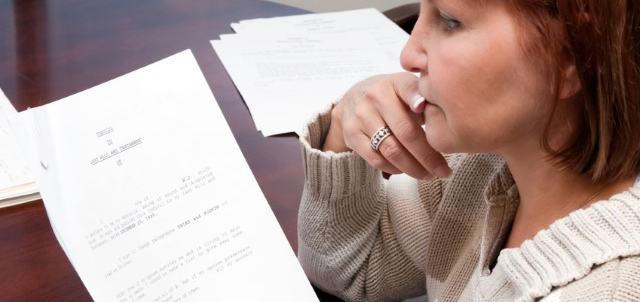When a Brokerage Account Holder Dies—What Comes Next?

Death is an unavoidable fact of life—and of financial planning. When it comes to the death of a brokerage account holder, many firms have trained staff and resources to help the living manage estate matters such as how brokerage account assets will pass to heirs and beneficiaries. While specific procedures vary, brokerage firms tend to follow a fairly similar process of transitioning account assets to an account holder's heirs and beneficiaries.
Once a firm has been notified of the death of an account holder, which should be done in a timely manner, here are some things you can expect.
Documentation
First, the brokerage firm will request a variety of documents. Generally, this will include some or all of the following items, in a format prescribed by the firm:
- death certificate;
- court letter of appointment naming the executor (current in its date and with a visible or original court seal);
- stock power, which is a type of power of attorney that allows for the transfer of ownership of stock;
- state tax inheritance waiver, if applicable;
- affidavit of domicile;
- for accounts held in trust, the trustee certification showing successor trustee and
- for joint accounts, a letter of authorization (LOA) signed by the surviving tenant if the assets are moving anywhere other than their own account. Alternatively, if there is no surviving tenant and the assets are moving anywhere other than the last decedent's estate account, the firm will require an LOA signed by the executor.
Required documents differ depending on the type of account the account holder has at their death. For example, different documents are required depending on whether the deceased had a single or joint account, whether one or both account holders are deceased, and whether the account is a trust and the trustee or grantor has died. In addition, each firm has its own requirements, so be sure to provide the firm with information about your specific circumstances to get clarity on what documents it will need.
To reduce the chance of having documents rejected, follow your firm's instructions closely. Firms may reject documents because they’re not signed in the appropriate capacity (for example, executor, survivor, trustee) or have been completed incorrectly (for example, by transposing certificate numbers). Documents may also be rejected if information on the document has been altered or the documents are outdated or missing the appropriate court seal.
Establishing a New Account
Once the necessary documents are received, a new account is typically set up for the beneficiary or estate, at which time securities registered in the name of the deceased person will be transferred. Generally, no account activity (buying, selling, transfer of the account to another firm) can occur until legal authority is established and the new account is opened.
As with any new account, the process will include filling out a new account application that will require the beneficiary to provide some personal information—such as Social Security number, annual income and net worth—and make certain decisions about the account. Registered financial professionals use this information for several purposes, including learning about the new account owner and their financial needs and meeting legal and regulatory obligations.
You should also take time to get to know your registered financial professional and firm: Use FINRA BrokerCheck to check out the background of an investment professional and firm.
Tips for Heirs and Beneficiaries
If you’re an heir or beneficiary to brokerage account assets, these tips can help the asset transition process go smoothly:
- Notify the firm in a timely manner of an account holder's death. If you aren't sure whether the deceased had a brokerage account, keep an eye out for account statements or other indications that an account exists.
- Know what you own. Upon taking ownership of the account assets, take time to understand your investment holdings and determine whether they’re right for you. In particular, learn about the risks of each investment, if there are any restrictions on when you can sell the investment (liquidity risk), and any fees or other costs associated with the investment.
- Investigate the pros and cons of selling investments. If you plan to sell assets, there likely will be costs and tax consequences from the sale. Selling decisions should align with your overall investment objectives.
- Assess whether the current firm and broker are right for you. You’re not required to stay with the deceased person's firm or the broker who handled the account—and you shouldn’t be pressured to do so. That said, don't feel compelled to transfer your account to another firm, and don't transfer assets or buy new ones without doing your due diligence about the firm, investment professional and investments.
Not every brokerage account transfer situation is trouble-free. But coming into the process with a sense of what to expect from the deceased person's brokerage firm, and what the firm will likely ask of you, can help make the transition less confusing.



